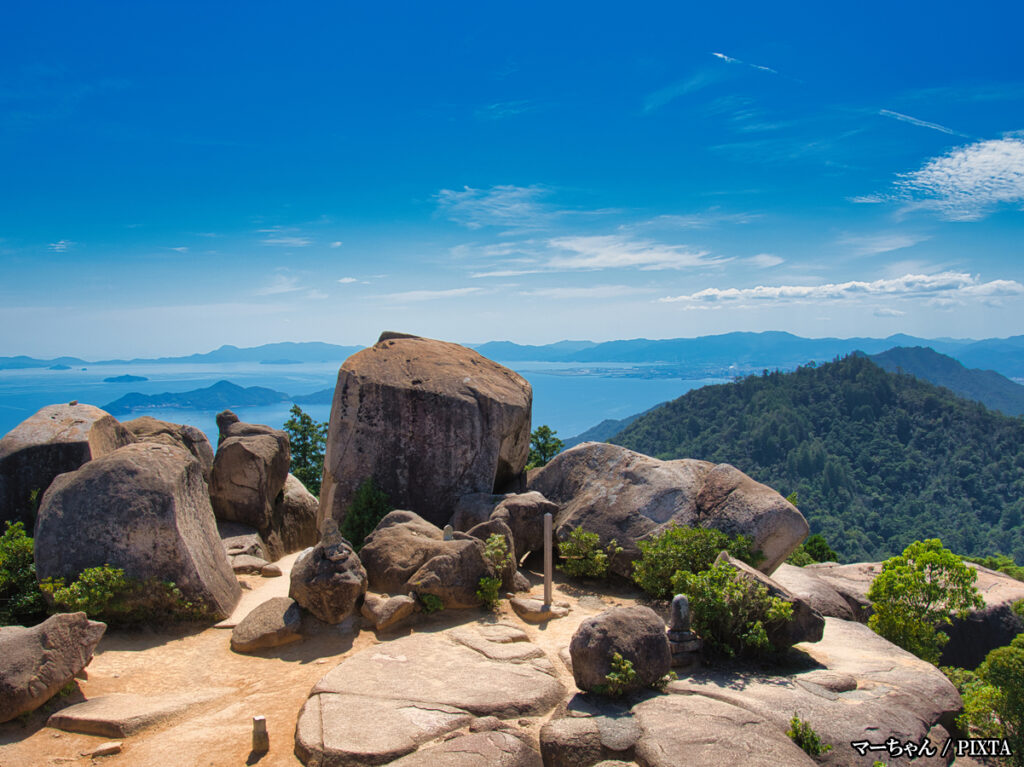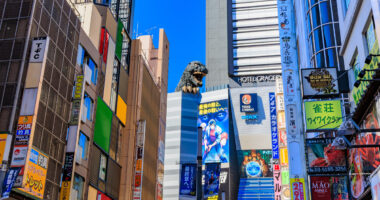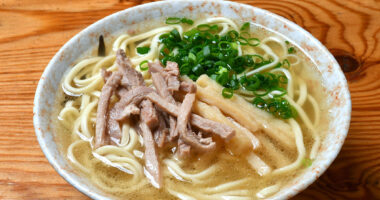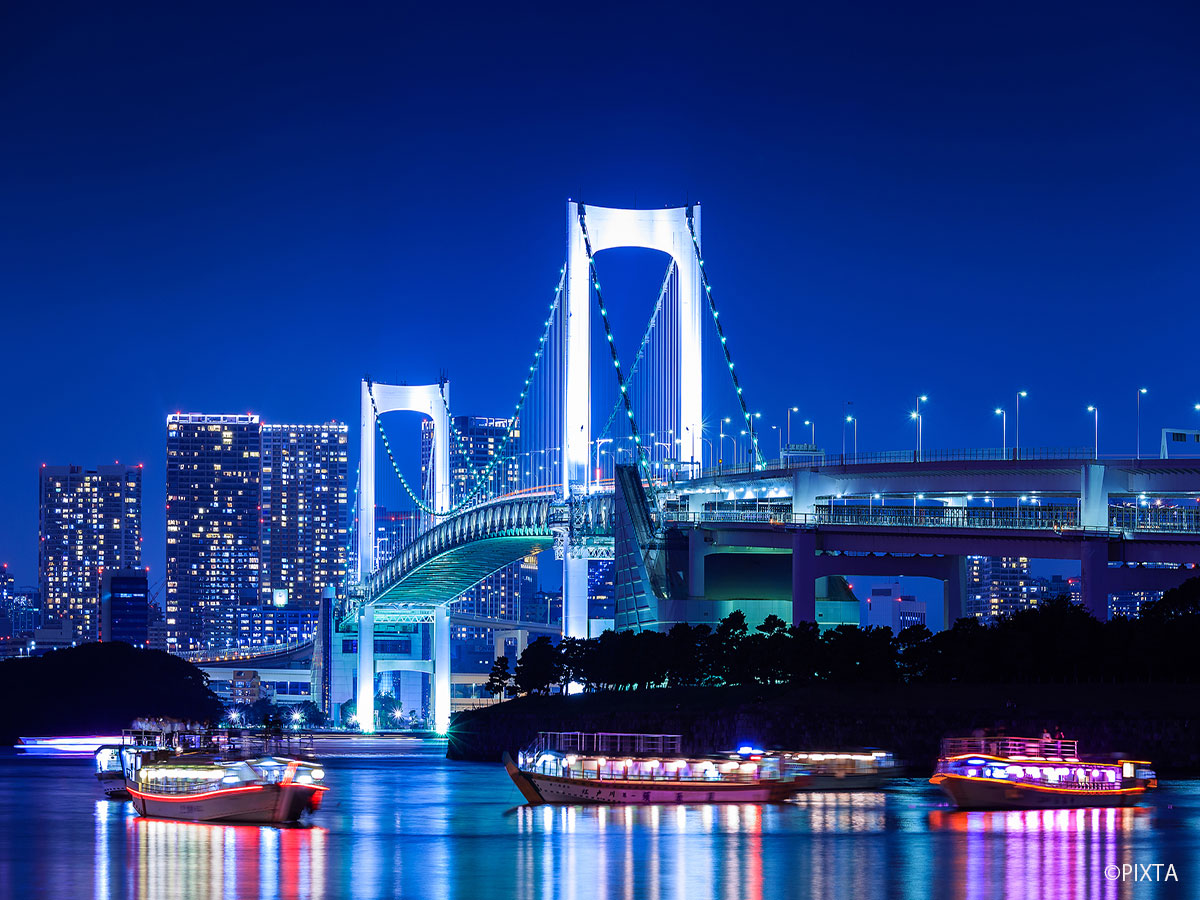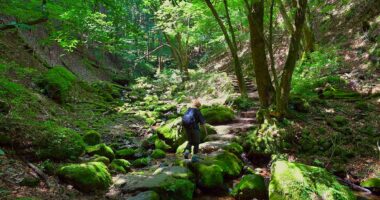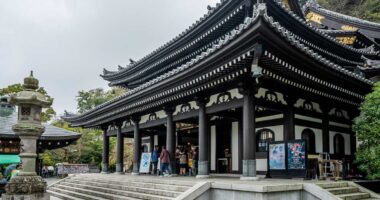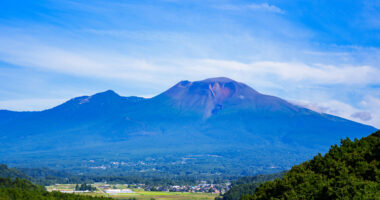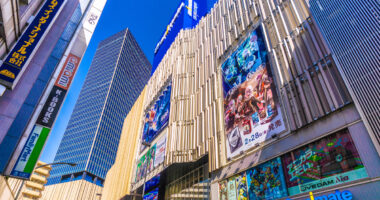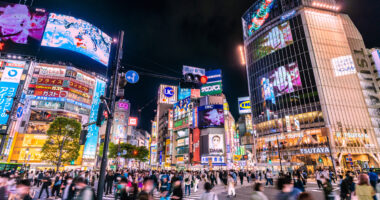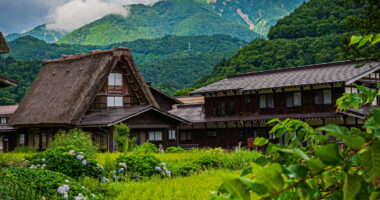Mount Misen, the tallest peak on Miyajima Island, not far from Hiroshima, Japan, offers hikers an unforgettable mix of panoramic views, lush forests, and spiritual heritage. Rising 535 meters (1,755 feet) above sea level, this mountain is not just a scenic gem but a sacred site steeped in history. Whether you’re a seasoned trekker or a casual walker seeking fresh air and forested tranquility, Mount Misen is an essential experience for nature-loving visitors to Japan.
In this guide, we’ll walk you through the main hiking trails to the summit, share scenic highlights along the way, and provide tips to make your Mount Misen hike safe and memorable.
- Introduction to Mount Misen
- Access to Mount Misen's hiking trails
- Overview of hiking trails: Choose your path
- Optional boost: Miyajima Ropeway + short hike
- Scenic highlights along the way
- Flora and fauna on Mount Misen
- Best times to hike and seasonal advice
- Summary of hiking routes
- Final thoughts: a sacred ascent worth every step
Introduction to Mount Misen
Mount Misen is more than a mountain—it’s a place of worship, wonder, and natural diversity. According to legend, the monk Kūkai (also known as Kōbō Daishi) lit a sacred flame here in 806 AD during a spiritual retreat. That flame, now part of the Reikadō Hall, still burns today and is considered a symbol of eternal life.
Besides its religious importance, Mount Misen offers incredible views of the Seto Inland Sea, peaceful encounters with wild deer, and an opportunity to explore untouched forests that have remained largely the same for centuries.
Related article:
Looking to explore more of Miyajima’s spiritual sites? Discover the famous Itsukushima Shrine and its iconic floating torii gate in our guide article, “Miyajima Island: Exploring the Sacred Itsukushima Shrine and Its Floating Torii Gate.”
Access to Mount Misen’s hiking trails
- Starting point: Miyajima Island
- Nearest station: Miyajimaguchi Station (JR Sanyo Line)
- Access route:
- From Hiroshima Station, take the JR Sanyo Line to Miyajimaguchi (approx. 30 minutes)
- Walk to the ferry terminal and board a ferry to Miyajima Island (10 minutes)
- Walk to the trailheads or take the ropeway for partial access
- Ferry cost: Around 200 JPY one-way (JR ferry free with Japan Rail Pass)
- Ropeway hours: 9:00 AM – 4:00 PM (varies by season)
- Best time to start hiking: Between 9:00 AM – 10:00 AM to avoid afternoon congestion and ensure return before sunset
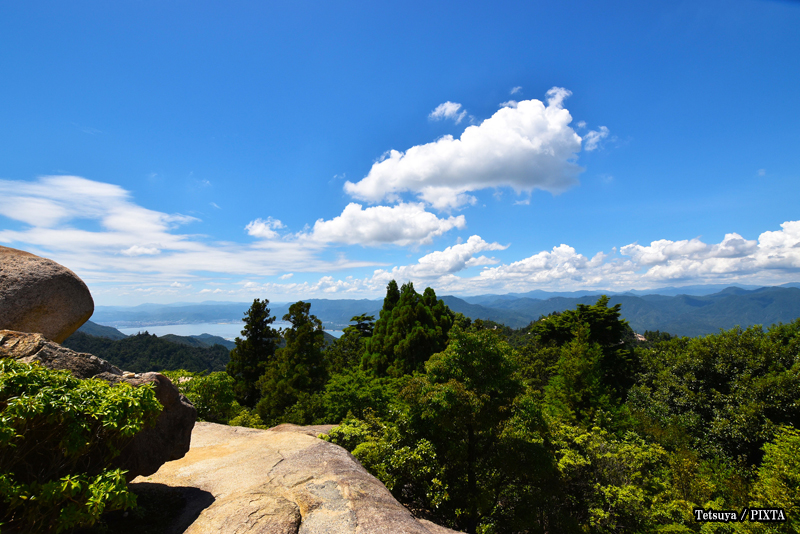
Photo for illustrative purposes
Related article:
Need detailed tips on getting to Miyajima and when to visit? Don’t miss our travel guide article on transportation options and seasonal highlights, “Navigating Miyajima: Access, Transportation, and Seasonal Highlights.”
Overview of hiking trails: Choose your path
Three main trails lead to Mount Misen’s summit. Each offers a different experience depending on your time, fitness level, and preference for scenery or solitude.
Daisho-in Course
- Trailhead: Near Daisho-in Temple Length: Approx. 2.5 km (1.5 miles)
- Time required: 1.5-2 hours
- Difficulty: Moderate
- Highlights: Stone steps, Buddhist statues, forested serenity
This is the most recommended trail for first-time visitors. Starting near the historically rich Daisho-in Temple, the route includes many carved stone figures and offers a peaceful walk through a dense forest. It’s shaded, well-maintained, and provides a gradual ascent.
Momijidani Course
- Trailhead: Near Momijidani Park
- Length: Approx. 2.5 km
- Time required: 1.5-2 hours
- Difficulty: Moderate to strenuous
- Highlights: Seasonal foliage, quieter path, wild deer
Ideal for those visiting in autumn, this trail winds through Momijidani Park, famed for its brilliant red maple leaves in November. It’s a more rugged trail with fewer tourists and steeper inclines, but rewards hikers with tranquility and natural beauty.
Ōmoto Course
- Trailhead: Near Ōmoto Shrine
- Length: Approx. 3.2 km (2 miles)
- Time required: 2-2.5 hours
- Difficulty: Strenuous
- Highlights: Panoramic sea views, old-growth forest
The least used and most demanding trail, Omoto Course is best suited for experienced hikers. The path is steep and less maintained, but the solitude and occasional views of the Seto Inland Sea make it worthwhile.
Optional boost: Miyajima Ropeway + short hike
If you’d prefer a lighter hike or are traveling with kids, the Miyajima Ropeway provides a scenic shortcut.
Route:
- Board at Momijidani Station
- Transfer at Kayatani Station
- Ride to Shishiiwa Station (near the summit trail)
Hike from Shishiiwa to the summit:
- Distance: Approx. 1 km (0.6 miles)
- Time required: 30-40 minutes
- Trail: Steep stone path with handrails
Note: The ropeway doesn’t reach the summit directly. A short but uphill hike is still required after disembarking.
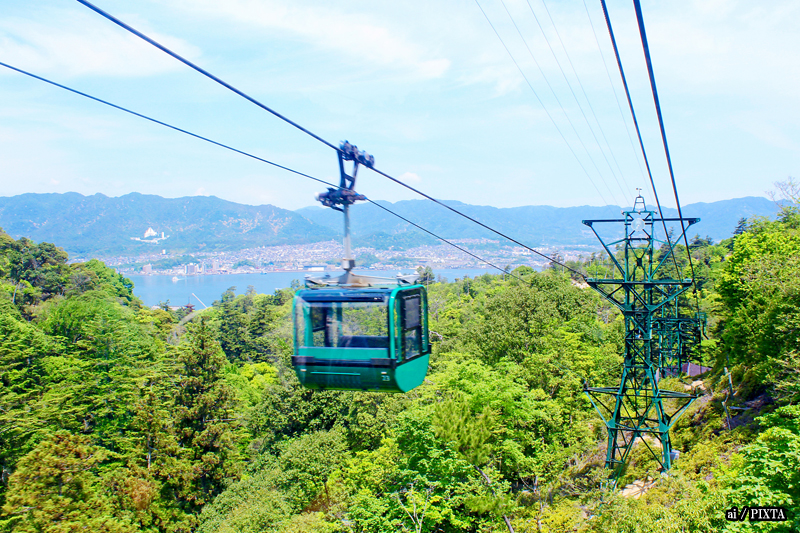
Photo for illustrative purposes
Scenic highlights along the way
Reikadō Hall
Located near the summit, this small wooden temple is home to the Eternal Flame lit by Kūkai over 1,200 years ago. It’s still burning today and is used to light the Flame of Peace in Hiroshima’s Peace Memorial Park.
Misen Hondō
The Main Hall of Mount Misen, Misen Hondō, is another sacred site where many pilgrims stop to pay their respects. Its elevated platform offers scenic views and a moment of calm.
Observatory deck
From the summit, you’ll be rewarded with sweeping 360-degree views of the Seto Inland Sea and neighboring islands. On clear days, you can even spot distant bridges and cityscapes far across the water.
Flora and fauna on Mount Misen
Mount Misen is part of a protected natural reserve and home to a diverse ecosystem. Keep an eye out for:
- Japanese macaques (monkeys): Rare, but sometimes seen along quieter paths
- Sika deer: Often found near trailheads and unafraid of humans, these symbolic animals are considered messengers of the gods
- Seasonal wildflowers: Particularly vivid in spring and early summer
- Moss-covered rocks and old-growth trees that lend an ancient feel to the forest
Please remember not to feed or approach the animals—especially the deer—as this can disrupt their natural behavior.
Best times to hike and seasonal advice
| Season | Highlights | Advice |
|---|---|---|
| Spring (March–May) | Cherry blossoms and wildflowers | Start early to avoid crowds |
| Summer (June–August) | Lush greenery | Bring plenty of water, watch for heatstroke |
| Autumn (October–November) | Stunning fall foliage | Most popular season—expect more visitors |
| Winter (December–February) | Clear skies, serene views | Trails may be slippery—check conditions |
Avoiding crowds: Weekdays and early mornings offer the quietest hiking experience. The Daisho-in Course tends to be less crowded than the ropeway route.
Hiking tips and safety
- Bring water and snacks: There are no vending machines on the trails or summit.
- Wear sturdy shoes: Paths include uneven steps and roots.
- Watch out for hornets and snakes: There have been sightings of Asian giant hornets and Japanese pit vipers, so be careful where you step and don’t go off the trail.
- Check return ferry times: Especially important if you’re on a tight itinerary.
- Dress in layers: Weather changes quickly on the mountain.
- No trash bins on trails: Carry out all your trash.
Summary of hiking routes
| Trail name | Distance | Time | Difficulty | Key features |
|---|---|---|---|---|
| Daisho-in | 2.5 km | 1.5–2 hr | Moderate | Spiritual path, Buddhist statues |
| Momijidani | 2.5 km | 1.5–2 hr | Moderate to strenuous | Autumn colors, deer |
| Omoto | 3.2 km | 2–2.5 hr | Strenuous | Solitude, panoramic views |
| Ropeway + Short hike | 1 km (hike) | 30–40 min | Easy to Moderate | Scenic ride, great for families |
Final thoughts: a sacred ascent worth every step
Hiking Mount Misen offers more than just physical exercise—it’s a journey through time, nature, and spirituality. With well-maintained trails, ancient legends, and unparalleled views, it’s no wonder this mountain is beloved by locals and visitors alike. Whether you’re climbing for fitness, photography, or reflection, Mount Misen promises a rewarding adventure.
